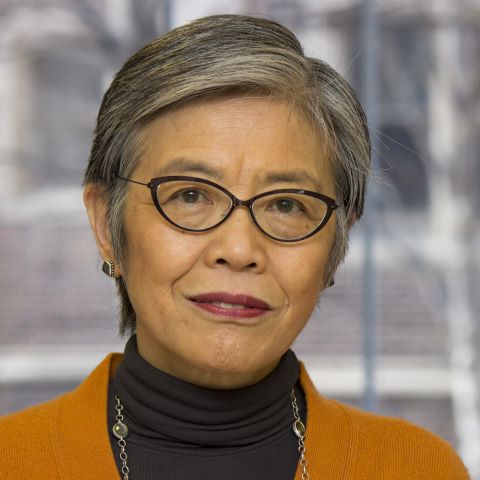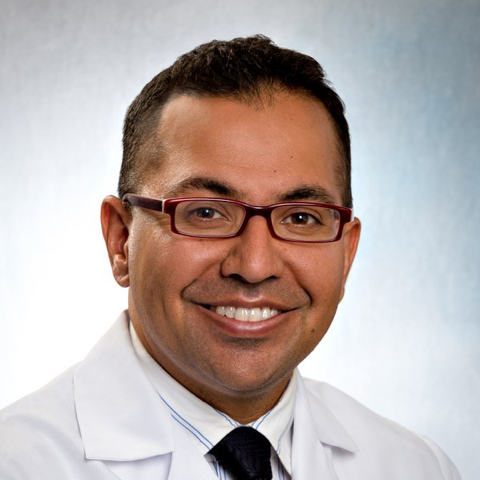Jungers Center 2024 Symposium: Proteinopathies in Neurodegenerative Disease
| When |
May 14, 2024
1 p.m. to 4 p.m.
Proteinopathies in Neurodegenerative Disease
Virginia Man-Yee Lee, Ph.D. Dr. Virginia M.-Y. Lee studied music at the Royal Academy of Music in London (1962-1964) and received her PhD in Biochemistry from the University of California at San Francisco in 1973. She joined the Department of Pathology and Laboratory Medicine at the Perelman School of Medicine at the University of Pennsylvania in 1981 and rose to become Professor of Pathology & Laboratory Medicine in 1989. She is the John H. Ware 3rd Endowed Professor in Alzheimer's Research, Director of the Center for Neurodegenerative Disease Research, and the Marian S. Ware Center for Alzheimer's Drug Discovery Program. Dr. Lee identified tau, alpha-synuclein and TDP-43 as disease proteins that form unique inclusions in Alzheimer’s, Parkinson’s and frontotemporal degeneration/Lou Gehrig’s disease, respectively, and has advanced understanding of their roles in these disorders. Together with her late husband John Q. Trojanowski, Lee's studies challenged conventional belief that Alzheimer’s disease is caused by aggregation of amyloid plaques and pointed to the tau protein as a major player. Dr. Lee’s h-index is 224 and she is listed among the 10 most highly cited AD researchers from 1985-2008 and among the top 400 most highly influential biomedical researchers from 1996-2011. ISI has recognized Dr. Lee as an ISI Highly Cited Researcher and places her in the top 10 most highly cited neuroscientists from 1997 to 2007.Dr. Lee has been ranked 2 among Top Female Scientists for 2022 by Research.com. She received the 2020 Breakthrough Prize in Life Sciences and 2024 Rainwater Prize. 
Michelle Gray, Ph.D. Dr. Michelle Gray is a Jarman F. Lowder Endowed Professor in Neuroscience and Associate Professor of Neurology. She obtained her PhD in Molecular, Cellular and Developmental Biology with a focus on Developmental Neurobiology using the zebrafish as a model system from The Ohio State University, Columbus, OH. She went on to perform post-doctoral training at the University of California, Los Angeles in the Semel Institute for Neuroscience and Human Behavior and Center for Neurobehavioral Genetics working with William Yang, where she generated the human conditional BACHD mouse model for Huntington’s disease. Dr. Gray is actively involved in undergraduate and graduate student training. She is the Director of the Graduate Biomedical Sciences Neuroscience theme PhD program, the Associate Director of the NINDS funded Roadmap Scholars Program, and the Summer In Biomedical Sciences program at the UAB Heersink School of Medicine. In addition, she serves on the Scientific Advisory Boards for the Hereditary Disease Foundation and the Huntington’s Disease Society of America and various NIH study sections. Her lab generates and uses transgenic models of neurodegenerative diseases to explore cell type specific contributions of mutant Huntingtin expressing cells to the pathogenesis of Huntington's disease. She is primarily focused on mutant Huntingtin expression and how it contributes to HD pathogenesis. She is studying the interaction of astrocytes and interneurons in HD mouse models using behavioral and electrophysiological approaches. 
Vikram Khurana, M.D., Ph.D. Vikram (Vik) Khurana is Chief of the Division of Movement Disorders at Brigham and Women’s Hospital and Harvard Medical School. He is Principal Faculty at the Harvard Stem Cell Institute, an Associate Member of the Broad Institute of Harvard and MIT and Associate Professor of Neurology at Harvard Medical School. His clinical and research interests relate to neurodegenerative disorders with a focus on Parkinson’s disease (PD) and related dementias, and rarer disorders including multiple system atrophy (MSA) and ataxias. The Khurana laboratory utilizes proteome-scale molecular mapping tools in conjunction with stem cell models and deep patient phenotyping to better understand the causes and consequences of protein-misfolding in these diseases. Dr. Khurana is a medical graduate of the University of Sydney and obtained his Ph.D. in neurobiology from Harvard University as a Fulbright Scholar. He completed his neurology residency and fellowship at Brigham and Women’s and Massachusetts General Hospitals, alongside postdoctoral training with Susan Lindquist and Rudolf Jaenisch at the Whitehead Institute for Biomedical Research (MIT). He led early studies to identify and reverse pathologies in human stem cells derived from PD patients. This work has led to the advancement of novel drugs (stearoyol-coA desaturase inhibitors) to clinical trials for Parkinson’s disease. Current efforts focus on novel functions and pathologies in alpha-synucleinopathies, including altered gene regulation, and integrating genomic and stem-cell technologies for targeted therapeutics. Dr Khurana is a George C. Cotzias Fellow of the American Parkinson’s Disease Association, a Derek-Denny Brown awardee of the American Neurologic Association, an investigator of the Aligning Science Across Parkinson’s Initiative and former NYSCF Robertson Stem Cell Investigator. He has co-founded two biotech companies that focus on CNS and neurodegenerative diseases. 
Susanne Van Veluw, Ph.D. Dr. Susanne van Veluw is an Associate Professor in the department of Neurology at Massachusetts General Hospital (MGH) and Harvard Medical School in Boston. She obtained her PhD in neuroscience at the University Medical Center in Utrecht, the Netherlands, after which she moved to the US for her post-doctoral training at MGH with Steven Greenberg and Brian Bacskai. Her translational cerebral amyloid angiopathy (CAA) research lab utilizes a range of neuroimaging tools, including in vivo and ex vivo MRI-guided histopathology in human brain tissues, as well as in vivo two-photon microscopy in mice to better understand the pathophysiology of microvascular injury in CAA. Specifically, research in the lab is focused on understanding the mechanisms involved in perivascular brain clearance and the role of inflammation in CAA-related hemorrhage. |
|---|---|
| Where |
Campus:
3222 SW Research Drive
Portland,
Oregon
97239
Room: 4320
We hope you will join us in-person. However, the Jungers Symposium will also be livestreamed via Echo360. |
| Contact Information |
Proteinopathies in Neurodegenerative Disease

Virginia Man-Yee Lee, Ph.D.
Dr. Virginia M.-Y. Lee studied music at the Royal Academy of Music in London (1962-1964) and received her PhD in Biochemistry from the University of California at San Francisco in 1973. She joined the Department of Pathology and Laboratory Medicine at the Perelman School of Medicine at the University of Pennsylvania in 1981 and rose to become Professor of Pathology & Laboratory Medicine in 1989. She is the John H. Ware 3rd Endowed Professor in Alzheimer's Research, Director of the Center for Neurodegenerative Disease Research, and the Marian S. Ware Center for Alzheimer's Drug Discovery Program. Dr. Lee identified tau, alpha-synuclein and TDP-43 as disease proteins that form unique inclusions in Alzheimer’s, Parkinson’s and frontotemporal degeneration/Lou Gehrig’s disease, respectively, and has advanced understanding of their roles in these disorders.
Together with her late husband John Q. Trojanowski, Lee's studies challenged conventional belief that Alzheimer’s disease is caused by aggregation of amyloid plaques and pointed to the tau protein as a major player. Dr. Lee’s h-index is 224 and she is listed among the 10 most highly cited AD researchers from 1985-2008 and among the top 400 most highly influential biomedical researchers from 1996-2011. ISI has recognized Dr. Lee as an ISI Highly Cited Researcher and places her in the top 10 most highly cited neuroscientists from 1997 to 2007.Dr. Lee has been ranked 2 among Top Female Scientists for 2022 by Research.com. She received the 2020 Breakthrough Prize in Life Sciences and 2024 Rainwater Prize.

Michelle Gray, Ph.D.
Dr. Michelle Gray is a Jarman F. Lowder Endowed Professor in Neuroscience and Associate Professor of Neurology. She obtained her PhD in Molecular, Cellular and Developmental Biology with a focus on Developmental Neurobiology using the zebrafish as a model system from The Ohio State University, Columbus, OH.
She went on to perform post-doctoral training at the University of California, Los Angeles in the Semel Institute for Neuroscience and Human Behavior and Center for Neurobehavioral Genetics working with William Yang, where she generated the human conditional BACHD mouse model for Huntington’s disease.
Dr. Gray is actively involved in undergraduate and graduate student training. She is the Director of the Graduate Biomedical Sciences Neuroscience theme PhD program, the Associate Director of the NINDS funded Roadmap Scholars Program, and the Summer In Biomedical Sciences program at the UAB Heersink School of Medicine.
In addition, she serves on the Scientific Advisory Boards for the Hereditary Disease Foundation and the Huntington’s Disease Society of America and various NIH study sections.
Her lab generates and uses transgenic models of neurodegenerative diseases to explore cell type specific contributions of mutant Huntingtin expressing cells to the pathogenesis of Huntington's disease. She is primarily focused on mutant Huntingtin expression and how it contributes to HD pathogenesis. She is studying the interaction of astrocytes and interneurons in HD mouse models using behavioral and electrophysiological approaches.

Vikram Khurana, M.D., Ph.D.
Vikram (Vik) Khurana is Chief of the Division of Movement Disorders at Brigham and Women’s Hospital and Harvard Medical School. He is Principal Faculty at the Harvard Stem Cell Institute, an Associate Member of the Broad Institute of Harvard and MIT and Associate Professor of Neurology at Harvard Medical School. His clinical and research interests relate to neurodegenerative disorders with a focus on Parkinson’s disease (PD) and related dementias, and rarer disorders including multiple system atrophy (MSA) and ataxias. The Khurana laboratory utilizes proteome-scale molecular mapping tools in conjunction with stem cell models and deep patient phenotyping to better understand the causes and consequences of protein-misfolding in these diseases.
Dr. Khurana is a medical graduate of the University of Sydney and obtained his Ph.D. in neurobiology from Harvard University as a Fulbright Scholar. He completed his neurology residency and fellowship at Brigham and Women’s and Massachusetts General Hospitals, alongside postdoctoral training with Susan Lindquist and Rudolf Jaenisch at the Whitehead Institute for Biomedical Research (MIT). He led early studies to identify and reverse pathologies in human stem cells derived from PD patients. This work has led to the advancement of novel drugs (stearoyol-coA desaturase inhibitors) to clinical trials for Parkinson’s disease. Current efforts focus on novel functions and pathologies in alpha-synucleinopathies, including altered gene regulation, and integrating genomic and stem-cell technologies for targeted therapeutics.
Dr Khurana is a George C. Cotzias Fellow of the American Parkinson’s Disease Association, a Derek-Denny Brown awardee of the American Neurologic Association, an investigator of the Aligning Science Across Parkinson’s Initiative and former NYSCF Robertson Stem Cell Investigator. He has co-founded two biotech companies that focus on CNS and neurodegenerative diseases.

Susanne Van Veluw, Ph.D.
Dr. Susanne van Veluw is an Associate Professor in the department of Neurology at Massachusetts General Hospital (MGH) and Harvard Medical School in Boston. She obtained her PhD in neuroscience at the University Medical Center in Utrecht, the Netherlands, after which she moved to the US for her post-doctoral training at MGH with Steven Greenberg and Brian Bacskai. Her translational cerebral amyloid angiopathy (CAA) research lab utilizes a range of neuroimaging tools, including in vivo and ex vivo MRI-guided histopathology in human brain tissues, as well as in vivo two-photon microscopy in mice to better understand the pathophysiology of microvascular injury in CAA. Specifically, research in the lab is focused on understanding the mechanisms involved in perivascular brain clearance and the role of inflammation in CAA-related hemorrhage.